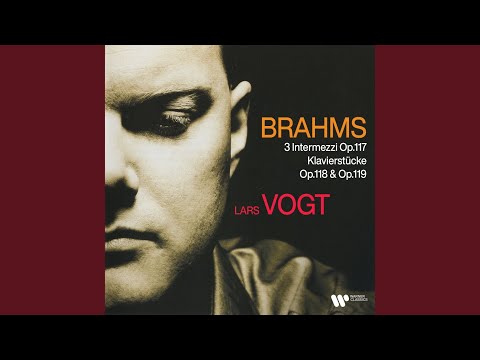- Sophie Dervaux, Munich Chamber Orchestra: “J.C. Bach & J.M. Haydn” (Berlin Classics)
- Lars Vogt: Brahms: “3 Intermezzi, Op. 117 & Klavierstücke, Op. 118 and 119” (Warner Classics)
A line from Phoebe Stuckes that has (for lack of a better word) stuck with me in the turnover of a new year: “I want to be stinking drunk in a restaurant eating bread from a basket, thinking of vintage Prada and snow.” Wait… didn’t we do this already? What year is it? Where am I? Who is Lydia Tár? Is it Groundhog Day again?
While (as one friend called it) the “TÁR” Wars have hit their second wave thanks to the film’s UK release, those of us in Germany are still standing on the distant shore, ready to dance the mask AND service the composer. But we have to wait until the end of next month. Our lives remain mainly unchanged compared to the beginning of 2022.
But Germany has something the rest of you don’t, and that’s Sophie Dervaux. Or, rather, we had Sophie Dervaux, who supplied some of the Berlin Philharmonic’s rare feminine energy roughly a decade ago before moving on to the Vienna Philharmonic in 2015. Still, we can at least lay minor claim to the 31-year-old bassoonist through her record label, Berlin Classics. And it’s with the Munich Chamber Orchestra that she makes the case with works by Bach and Haydn. That is, Johann Christian Bach and Johann Michael Haydn, “also-rans” against the legacies of, respectively, their father and brother.
The branding of this album, titled “J.C. Bach and J.M. Haydn,” gives the listening experience a patina of musical three-card monte. Both attributed to the years just before his death in 1782, Johann Christian Bach’s bassoon concerti dare you to find his father’s oversized influence in a world that sounds more like that of Mozart (who was 26 when Bach died and called the event “a loss to the musical world”). At this point in his career, Bach had long abandoned the liturgical tradition espoused by his father and brothers, moving to Milan when he was 20 and supposedly shacking up with one of the city’s many opera singers. Ten years later, he went to London, serving as music master to Queen Charlotte and enjoying a career that drew upon the influences of Italian opera seria and the cosmopolitan and continental cultural scene of the Georgian era.
All of this comes through with clarity and elegance in Dervaux and the MCO’s performances of both concerti, which highlight the strands of influence that would connect Bach the son to the Haydn brothers (Franz Joseph’s music would dominate London society following Johann Christian’s death at the age of 47), and—more obvious—the tones and textures that would find their way into Mozart’s operas with Lorenzo da Ponte. Dervaux threads the needle even further in the Adagio section, sneaking in a reference to the Third “Brandenburg” Concerto in her cadenza. The parallels between the Haydn brothers are much more apparent in Johann Michael’s Symphony No. 14, subtitled “Concertino per il Fagotto” after the bassoon solo in the second movement. It’s the most interesting moment of the work (which Dervaux also conducts): Like the Bach concertos, this solo is a showcase for her woodsy and phosphorescent tone. A novelty in this case, however, it cuts with a sharper blade through the more familiar fare—so familiar, in fact, that this symphony was originally attributed to the more famous of the two Haydns. If I’m not angling for more Johann Michael Haydn in my life, I’m nonetheless sated by the free flow of joy and desire that Dervaux has tapped into.
The latest from VAN, delivered straight to your inbox
Also in last year’s first installment of Stuff I’ve Been Hearing, I quoted Lars Vogt on the Opus 30 sonatas of Beethoven (a pupil of one of the Haydns—I’ll give you three guesses as to which), who said that elements of the sonatas that may seem forward-looking are, in fact, “really very inward in orientation. In it I already detect traces of the slight melancholy that sometimes resonates in his music.… [It] belongs to his most personal music of all. Thoughts of farewell are also articulated here.”
Here is probably the place to note a correction, or at least a caveat, to the second paragraph of this article. Among the multiple Ukraine-, Iran-, and Twitter-shaped asterisks appended to the idea that our lives remain mainly unchanged compared to the beginning of 2022 (to name a few) is the gap left by Vogt, who died last September shortly before his 52nd birthday following a diagnosis of esophageal cancer in early 2021.
It’s usually around events such as these that the digital reissues start to flow in, such as those made by Vogt’s early label, EMI. With an active recording catalog on Ondine in the final years of his life, it was a bit disorienting to see a “new” Warner Classics release from Vogt pop up in my Tidal feed last week before I connected the dots, thanks in no small part to Discogs. Despite having originally landed on Tower Records listening stations almost 20 years ago, this collection of Brahms’s Intermezzi and Klavierstücke was new to me.
In 2021, Vogt told VAN about the “solace” he found in Brahms during his initial round of chemotherapy for the “adjustment of perspective” it offered: “It’s first of all the dark colors in his music. And then he goes into that sweetly fragile major, almost to the point of being saccharine. It’s like he’s looking back at childhood.…not a complete identification with childhood, but from an adult perspective—from a person who’s seen a lot.” He was speaking in particular about the composer’s “7 Fantasien,” a work Vogt learned during his treatment, but the two poles of pensive resignation and delicate sweetness are equally pronounced in the works that followed Op. 116. Here, Vogt makes his way through Brahms’s final works for solo piano—Opuses 117, 118, and 119. Presented in this order, they mark a passage in the composer’s life from autumn to winter. Of the lattermost collection, Brahms told Clara Schumann: “Every bar and every note must sound…as if one wanted to suck melancholy out of each and every one, lustily and with pleasure out of these very dissonances! Good Lord, this description will awaken your desire!”
Hearing an early-30-something Vogt play these works makes me wonder how he would have approached them over the last few years. If, during his 2002 recording session, he was sucking the melancholy out of each bar like Henry VIII with a leg of mutton, that doesn’t come through. And it’s a better recording for it. There are hints of the black bile at the etymological root of melancholy, but it’s a spectrum of colors, of shades that turn warm and cool depending on the direction the wind blows the notes. You can pick out undertones of oxblood and ochre. Brahms’s own interior states and thoughts of farewell were undeniably elegiac, but Vogt’s early journey through them also offers a wealth of beauty and solace. Listening to this recording with the given adjustments of perspective is an unexpected pleasure. ¶
Subscribers keep VAN running!
VAN is proud to be an independent classical music magazine thanks to our subscribers. For just over 10 cents a day, you can enjoy unlimited access to over 875 articles in our archives—and get new ones delivered straight to your inbox each week.
Not ready to commit to a full year?
You can test-drive VAN for one month for the price of a coffee.




